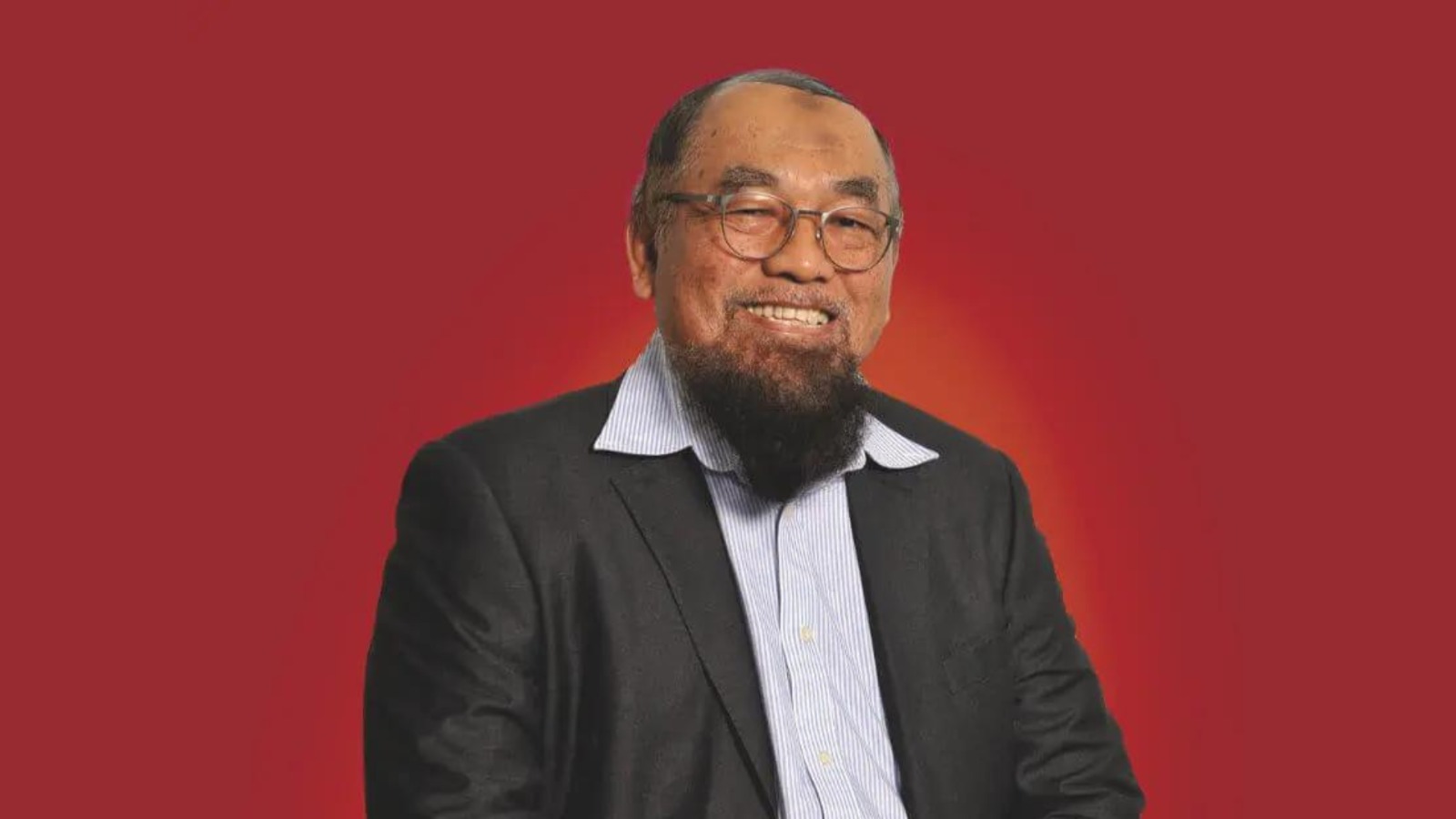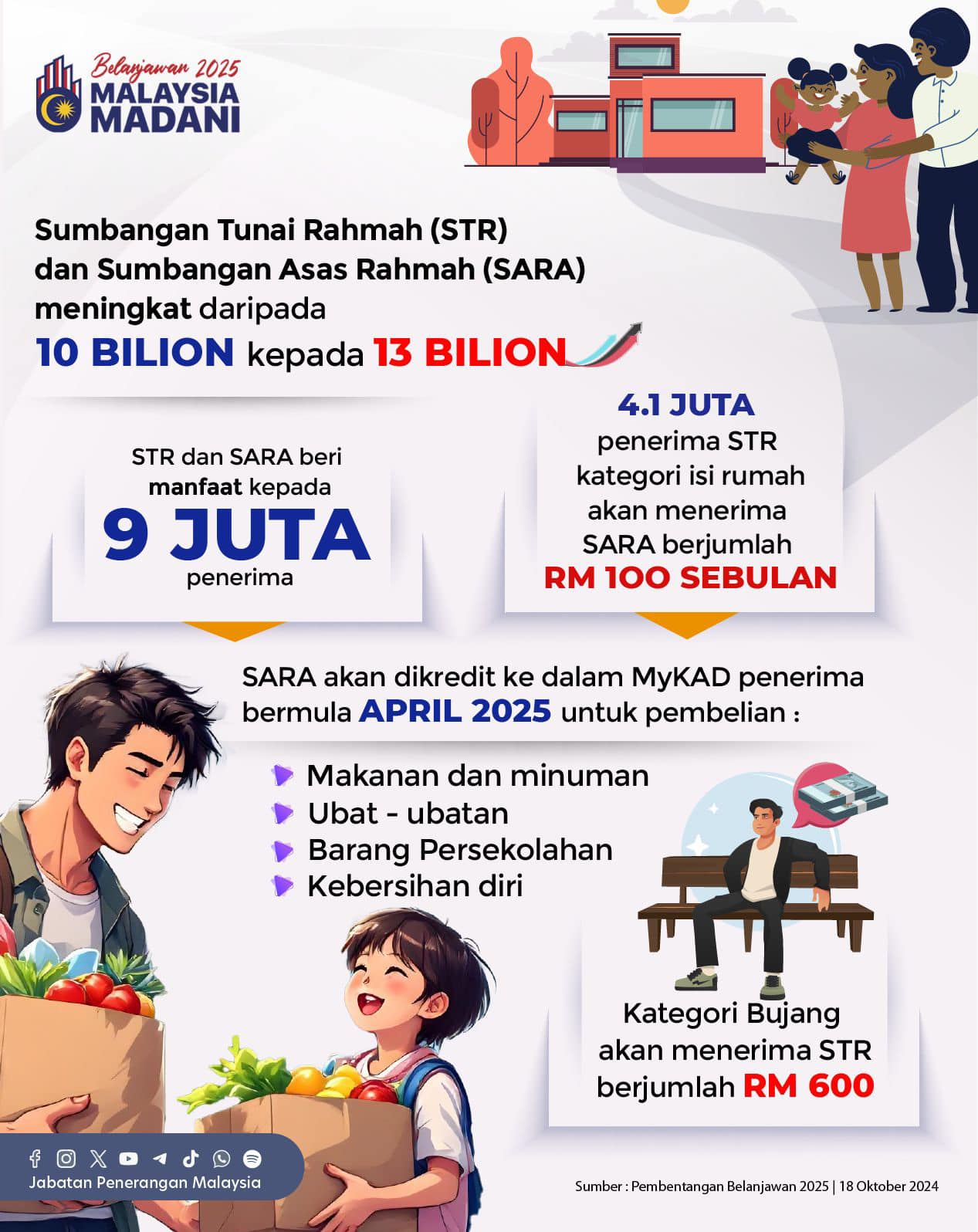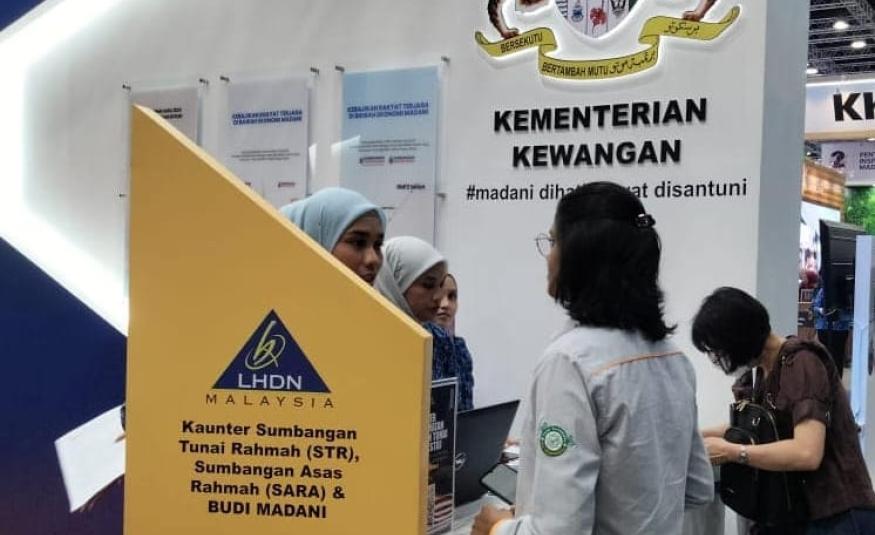KUALA LUMPUR Nov 26 – The government's recent decision to increase the Sumbangan Tunai Rahmah (STR) allocation from RM10 billion to RM13 billion in Budget 2025 reflects its ongoing commitment to alleviating financial burdens on low-income groups.
However, according to Professor Emeritus Dr. Barjoyai Bardai, Provost and Dean of Postgraduate Studies at the Malaysian University of Science and Technology (MUST), the STR initiative must evolve to become a sustainable long-term solution.
Dr. Barjoyai, in an exclusive interview, emphasized the need to establish an endowment fund as the backbone of Malaysia’s social protection system, ensuring continuous support for the B40 and hardcore poor.

STR: A Lifeline for Millions, But Not Enough
The STR program, introduced as a direct cash aid initiative, now reaches 9 million Malaysians, with each household receiving an average of RM3,000 annually. While the increase in allocation has provided relief, Dr. Barjoyai argued that its current form falls short of addressing the deeper issues of poverty and inequality.
“The RM300 a month is significant for many households—it can cover petrol expenses or pocket money—but it is far from enough to lift families out of poverty,” he said. “While we should be grateful for what is provided, the government needs to develop a more sustainable mechanism to support the rakyat.”
He proposed a bold vision: the creation of an endowment fund modeled after successful examples like Norway’s sovereign wealth fund.
The Endowment Fund Solution
According to Dr. Barjoyai, an endowment fund would pool assets from government-linked investments in entities such as Khazanah Nasional, Ekuinas, and Petronas. These funds would remain untouched, with only the returns distributed to support programs like STR.
“If we channel RM500 to RM600 billion worth of assets into the endowment fund and achieve a 6% annual return, we could generate RM30 billion a year,” he explained. “This is more than double the current STR allocation and would allow us to provide meaningful support to those in need.”
Dr. Barjoyai highlighted how similar funds in resource-rich countries, like Norway, have grown exponentially over decades.
“Norway started with RM5 billion, and today their sovereign wealth fund is worth RM10 trillion. Malaysia can emulate this model by leveraging not just oil but also other resources, such as rare earth minerals, valued at RM4 trillion.”
The Role of Corporate Contributions
To bolster the endowment fund, Dr. Barjoyai called for a nationwide campaign to encourage contributions from the corporate sector.
“Incentives like tax breaks could encourage corporations and large foundations to donate to the endowment fund. A well-funded endowment would ensure that aid programs like STR remain financially sustainable, even during economic downturns.”
However, he lamented that past efforts to establish such funds were undermined by misuse.
“During the pandemic, funds were withdrawn for emergency expenditures like vaccine procurement, violating the principle of maintaining the fund’s capital. We must ensure such practices do not recur.”

STR’s Link to the Diesel Subsidy Success
The government’s ability to expand STR funding was partly attributed to savings from its diesel subsidy rationalization efforts. Dr. Barjoyai lauded this achievement but cautioned against over-reliance on market-driven policies.
“Malaysia’s focus on a free-market economy often mirrors the recommendations of institutions like the IMF and the World Bank, but it perpetuates inequality,” he noted. “Globally, the richest 1% own 30% of a nation’s wealth. In Singapore, it’s 50%. Malaysia’s 50% poorest share only 2% of wealth. This model is unsustainable.”
He advocated for a recalibrated approach, inspired by Islamic economic principles, to achieve a more equitable distribution of wealth.
“If we allocate RM600 billion from the country’s wealth to a social protection fund owned by the rakyat, it would immediately enhance wealth distribution and economic justice.”
Lessons from STR and the Road Ahead
Since its inception, STR has provided critical support to vulnerable Malaysians. However, without systemic reforms, its impact remains limited.
To ensure the additional funds effectively alleviate financial strain, Dr. Barjoyai suggested:
- Enhanced Targeting: Use advanced data analytics to identify and prioritize the most vulnerable groups.
- Financial Literacy Programs: Empower recipients to manage funds effectively and invest in income-generating activities.
- Community Engagement: Collaborate with grassroots organizations to monitor and evaluate the program’s effectiveness.
A Bold Vision for Malaysia
Dr. Barjoyai’s call for an endowment fund signals a shift from short-term solutions to long-term sustainability. As Malaysia grapples with rising inequality and fiscal challenges, his vision offers a pathway to transform social assistance into a robust safety net that uplifts all Malaysians.
“We must think beyond temporary fixes,” he concluded. “An endowment fund could redefine how we support the rakyat, ensuring that no Malaysian is left behind, regardless of economic conditions.”
The ball is now in the government’s court to take this ambitious proposal forward. - DagangNews.com










